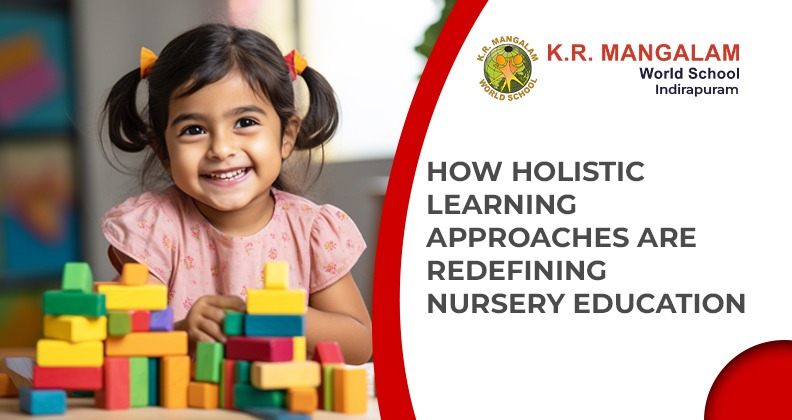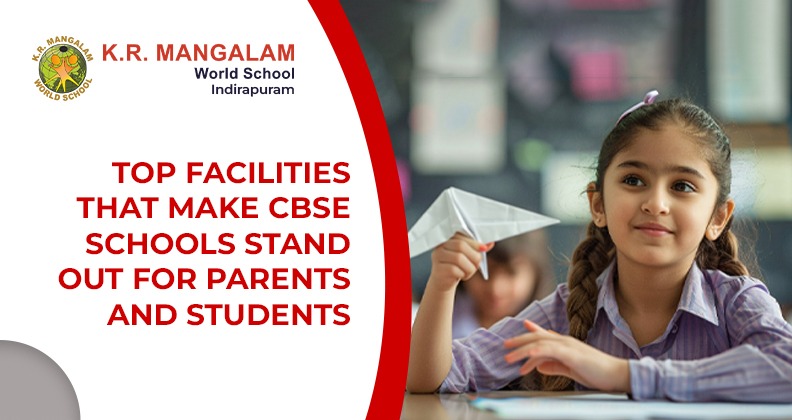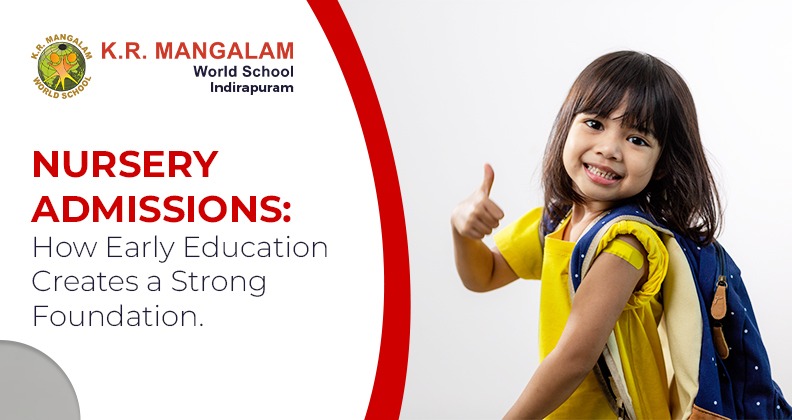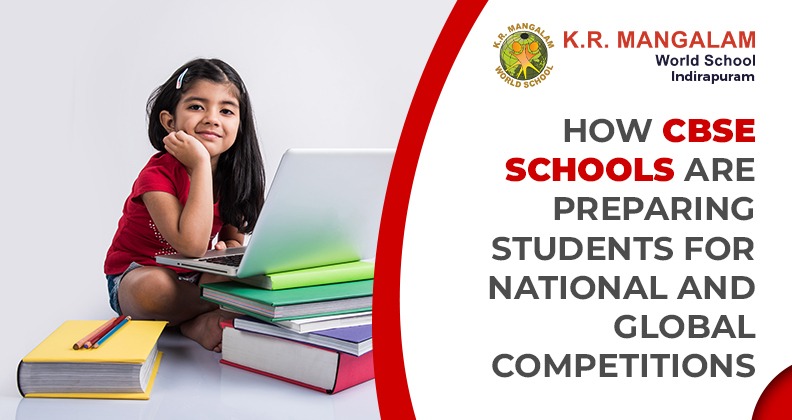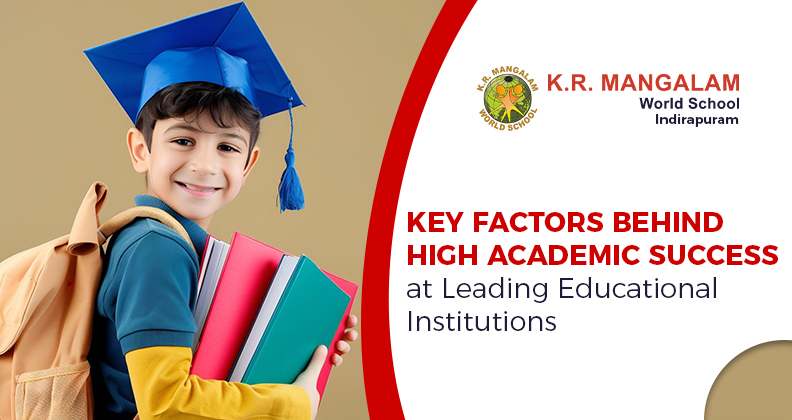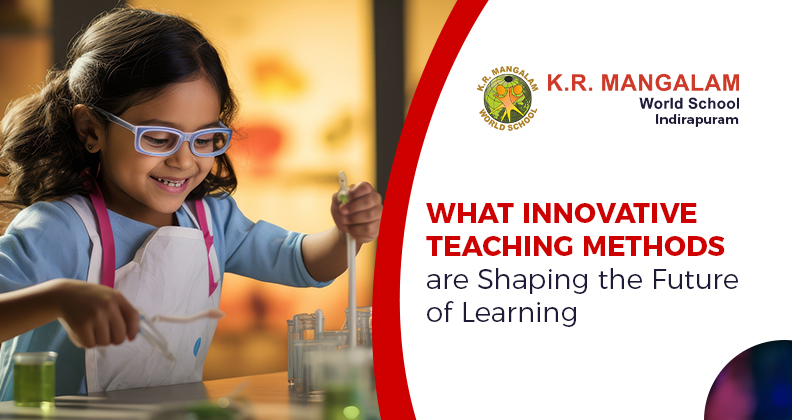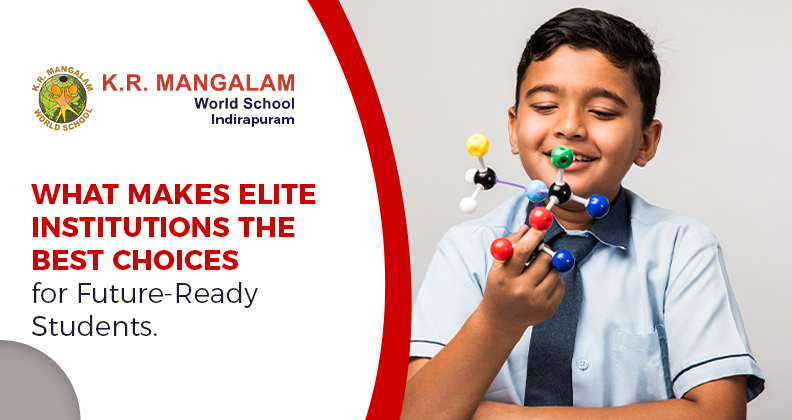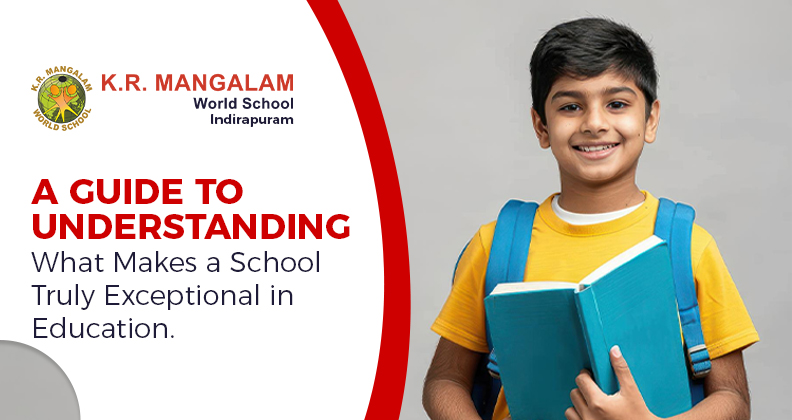Introduction:
Early childhood is a crucial phase that sets the tone for a child’s lifelong journey of learning, growth, and personal development. At K.R Mangalam, Indirapuram, the Daycare in Indirapuram Ghaziabad where traditionally, nursery education was centered on basic academic preparation, but modern parents and educators now understand the importance of nurturing the whole child—intellectually, emotionally, socially, and physically. This shift towards holistic learning has revolutionized early childhood programs and made them more engaging, meaningful, and effective.
Parents seeking nurturing school often look for institutions that go beyond conventional teaching and focus on building life skills, fostering creativity, and encouraging curiosity. This article explores how holistic approaches are redefining nursery education, why they matter, and how they create a strong foundation for future success.
About Us:
KR Mangalam embraces holistic nursery education that nurtures every facet of a child’s being—mind, body, and heart. Our early learners thrive in environments blending play-based explorations, multisensory zones, creative studios, and role-play corners. Through art, music, movement, and storytelling, children develop emotional intelligence, social awareness, and expressive confidence. Mini yoga sessions, outdoor physical play, and collaborative art projects further reinforce balance and mindfulness. Interactive “family days” and theme-based festivals bring the school and parents together, celebrating diversity and collective growth. As one of the most progressive schools, our approach builds well-rounded learners right from the start.
-
What is Holistic Learning in Nursery Education?
Holistic learning is an approach that focuses on the overall development of a child rather than only academic readiness. It integrates physical, emotional, cognitive, social, and creative aspects of education, ensuring children grow as well-rounded individuals.
Key components include:
- Experiential learning: Children learn through real-world experiences, play, and exploration.
- Personalized attention: Recognizing that each child has unique strengths and developmental needs.
- Balance of academics and life skills: Early literacy and numeracy are taught alongside communication, collaboration, and problem-solving.
This method prepares children not only for primary school but also for the complexities of real-life interactions and challenges.
-
Why Holistic Approaches Are Becoming Essential
In today’s fast-evolving world, traditional rote-learning models no longer meet the demands of 21st-century education. Holistic nursery programs are essential because they:
- Promote emotional intelligence, resilience, and adaptability.
- Encourage natural curiosity and independent thinking.
- Lay the foundation for social values such as empathy, cooperation, and respect.
- Reduce academic pressure by making learning playful and engaging.
Such an environment allows children to thrive, regardless of their learning pace or individual personality traits.
-
Role of Play-Based Learning
Play is at the heart of holistic nursery education. It is through play that children develop cognitive skills, fine and gross motor abilities, and emotional understanding. Play-based methods include:
- Role-play and pretend games: Encourage imagination and social interaction.
- Building blocks and puzzles: Foster problem-solving and spatial awareness.
- Outdoor activities: Improve physical health, teamwork, and resilience.
Play transforms classrooms into vibrant spaces where learning feels natural and enjoyable rather than forced.
-
Integration of Arts and Creativity
Creative expression is a significant pillar of holistic learning. Arts, music, dance, and storytelling enable children to express their emotions, develop fine motor skills, and build cultural awareness.
Activities like painting, singing, or dramatizing stories not only enhance imagination but also improve focus and communication. This creativity nurtured during nursery years often translates into innovative thinking and confidence in later academic pursuits.
-
Developing Emotional and Social Skills
Holistic nursery education emphasizes emotional well-being as much as intellectual growth. Teachers guide children in identifying emotions, managing feelings, and resolving conflicts positively.
Social skills are cultivated through:
- Group activities and team-based games.
- Celebrations of cultural events to teach inclusivity.
- Circle time discussions to promote empathy and active listening.
By developing these competencies early, children are better prepared to navigate relationships and collaborate effectively in future settings.
-
Role of Teachers as Mentors
In a holistic learning environment, teachers are not just instructors but mentors who guide children through their developmental journey. They:
- Observe and assess each child’s learning style.
- Provide individualized support to ensure no child is left behind.
- Create a warm, trusting atmosphere where children feel valued and understood.
The mentorship approach builds a strong foundation of trust, enabling children to feel confident and secure while exploring new concepts.
-
Physical Development and Health Focus
Holistic nursery education integrates health, nutrition, and physical fitness into daily routines. Activities like yoga, dance, free play, and outdoor sports help children develop balance, coordination, and overall fitness.
Balanced meals and awareness sessions on healthy eating habits also contribute to their physical well-being, which directly impacts cognitive performance and mood regulation.
-
Multisensory Learning Techniques
Children learn best when multiple senses are engaged. Holistic nurseries adopt multisensory strategies, such as:
- Tactile materials like sand and clay.
- Visual aids including storyboards and colorful charts.
- Auditory elements like rhymes and interactive storytelling.
This approach supports children with different learning styles and strengthens memory retention.
-
Inclusion of Technology in Early Education
Modern holistic learning embraces technology in a controlled, meaningful manner. Digital tools like interactive boards, educational apps, and audio-visual aids help make abstract concepts tangible for young learners.
Technology is used not to replace traditional learning but to enhance it, ensuring children are comfortable with digital literacy from an early age.
-
Importance of Parent Involvement
Holistic education thrives on strong collaboration between parents and educators. Parents are encouraged to:
- Participate in interactive sessions and workshops.
- Reinforce classroom learning at home through reading, games, and discussions.
- Provide emotional support during transitions like starting school or joining new activities.
This partnership ensures consistency in values, routines, and developmental goals, creating a supportive ecosystem for the child.
-
Building a Love for Lifelong Learning
One of the greatest achievements of holistic nursery education is its ability to instill a love for learning that lasts a lifetime. Children are encouraged to ask questions, make observations, and explore the world around them.
By associating education with joy rather than stress, nurseries set the stage for motivated, curious learners who continue to excel academically and personally.
-
Environmental and Cultural Awareness
Holistic programs often include environmental education, gardening activities, and cultural celebrations. These elements teach children to:
- Respect nature and practice sustainability.
- Appreciate diversity and develop global awareness.
- Understand their role as responsible members of society.
This exposure shapes compassionate individuals who value their surroundings and community.
-
Smooth Transition to Primary Education
A well-rounded nursery experience ensures children are not just academically prepared but also emotionally and socially equipped to handle primary school expectations.
This includes:
- Familiarity with classroom structures.
- Basic literacy and numeracy skills.
- Confidence to communicate with peers and teachers.
The transition becomes seamless, reducing anxiety and building excitement for the next stage of learning.
-
Long-Term Impact of Holistic Learning
Children who experience holistic nursery education often demonstrate:
- Strong interpersonal skills.
- High adaptability in dynamic environments.
- Enhanced critical thinking and creativity.
- Better emotional resilience and self-awareness.
These qualities continue to benefit them throughout their academic years and into adulthood.
-
Choosing the Right Nursery or Daycare
For parents searching for a nurturing schools, it is vital to assess:
- Curriculum philosophy (play-based, Montessori, or blended).
- Teacher qualifications and child-to-teacher ratios.
- Safety standards, hygiene, and infrastructure.
- Availability of enrichment programs beyond academics.
A school that embodies holistic principles ensures that children receive care, guidance, and opportunities that extend far beyond the classroom.
Conclusion:
Nursery education is no longer limited to preparing children for alphabets and numbers; it has evolved into a comprehensive program that nurtures every dimension of a child’s personality. At K.R Mangalam, Indirapuram, the Daycare in Indirapuram Ghaziabad where holistic learning approaches focus on curiosity, creativity, collaboration, and compassion, laying the foundation for a bright and well-balanced future.
Parents who choose a preschool or daycare that integrates these methods give their children a significant head start—not just in academics but in life. By fostering physical health, emotional intelligence, social responsibility, and intellectual curiosity, holistic nursery programs are redefining early education for a rapidly changing world.
FAQs:
Q. 1 : What is holistic learning in nursery education?
Ans : Holistic learning focuses on intellectual, emotional, physical, and social growth through interactive, play-based, and experiential methods.
Q. 2 : How do daycare programs complement holistic nursery learning?
Ans : Daycare programs provide structured care, creative playtime, and guided learning extensions, ensuring continuous development.
Q. 3 : Are digital tools used in holistic learning?
Ans : Yes, smart boards, digital storytelling, and interactive games make early learning engaging and impactful.
Q. 4 : How are teachers trained for this approach?
Ans : Educators undergo regular training in early childhood pedagogy, Montessori methods, and innovative teaching techniques.
Q. 5 : What extracurricular activities support holistic growth?
Ans : Activities like dance, drama, nature walks, and art therapy foster creativity and emotional intelligence.
Q. 6 : Does this approach help in school readiness?
Ans : Yes, it equips children with problem-solving skills, confidence, and adaptability, ensuring smooth transition into higher grades.


